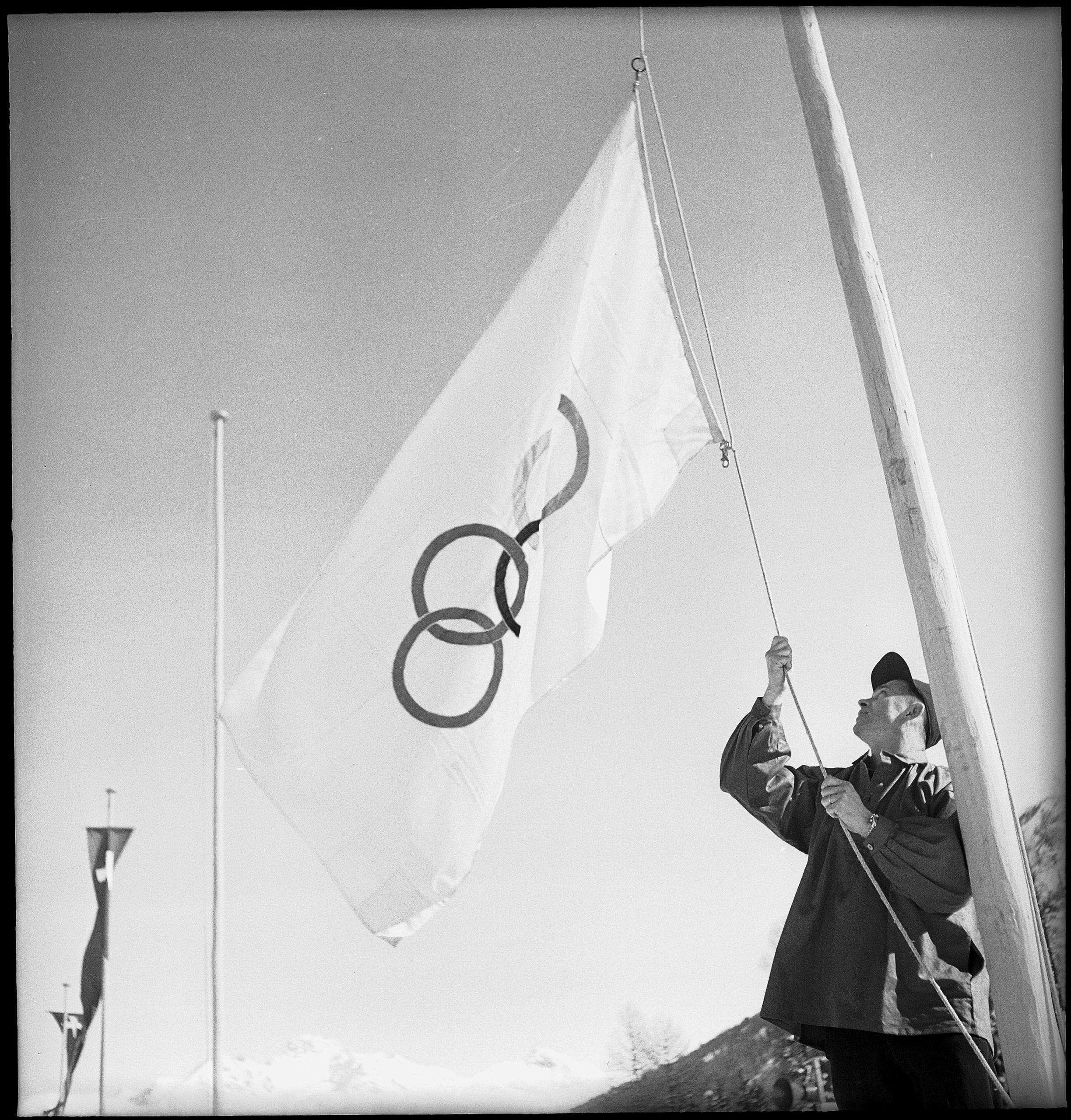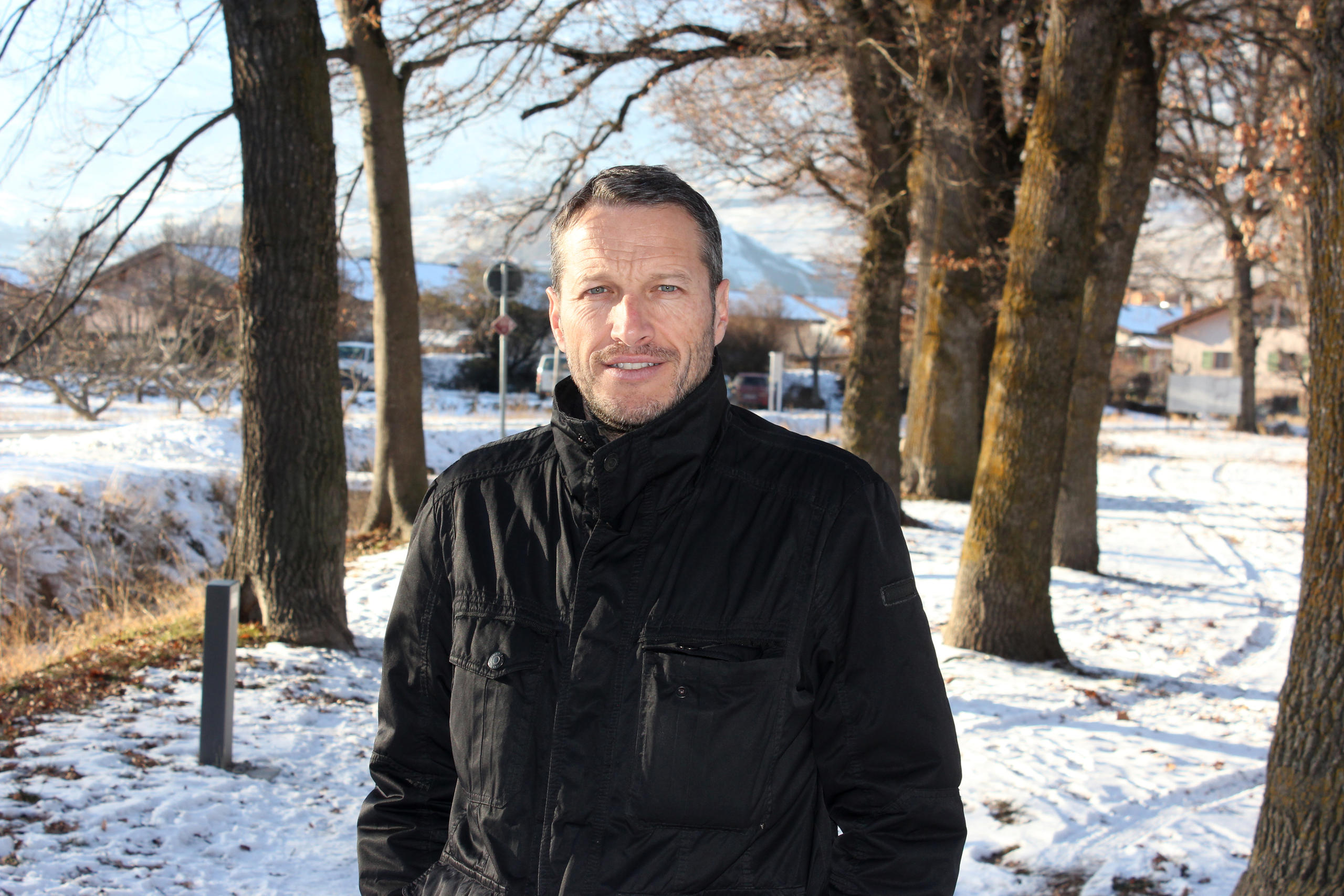
Sion Olympic bid is ‘a wrong signal at the wrong time’

After Sion’s failed bid to host the Winter Olympic Games in 2006, the capital of canton Valais is trying again. Not everyone shares the Olympic dream, however. An environmentalist and tourism expert tells swissinfo.ch why he is not convinced.
On Friday, officials launched their campaign, “Sion 2026 – the Games at the heart of Switzerland”. It would involve four cantons in western Switzerland, and Sion as host city.
Another bid, from canton Graubünden, also plans to share events among several cantons, including Thurgau, St Gallen and Schaffhausen. The national organising committee, Swiss Olympic, will decide between the two options in April, and the international selection process will conclude in June 2019.
However, Christophe ClivazExternal link, a Green Party politician from Valais and professor of sustainable tourism at the University of Lausanne, denounces what he considers an expensive bid based on an outdated model of tourism development.

swissinfo.ch: Is Sion’s candidacy for the 2026 Winter Olympics good news for canton Valais?
Christophe Clivaz: I am absolutely against this Olympic candidacy. As a local councillor in Sion, I am worried about the future finances of my city. Studies show that between 1960 and 2012, the average budget overrun for Winter Olympic Games from the initial estimate is 179%.
If we have to organise the Games, even decentralised, it would mean that a large part of our resources – financial and human – would be devoted to this project for several years. We would no longer have the means to invest in other priority areas such as education or children’s day care, for example.
swissinfo.ch: But wouldn’t it be a good opportunity to kick-start the struggling Valais tourism industry?
C.C.: Climate change means people involved with tourism have been forced to diversify their activities and focus more on the summer season. To organise the Winter Olympics in Valais is to send precisely the wrong signal at the wrong time. The promoters of this candidacy are simply perpetuating the old model, which consists of saying that the future of tourism lies exclusively in winter and snow sports.
swissinfo.ch: Nevertheless, the Olympic Games can be a good opportunity to rethink the future of a city or region.
C.C.: It is true that in Turin (which beat Sion in 2006), for example, the Olympic Games gave a boost to local tourism and enabled the city to carry out urban development that would not have happened otherwise. However, in Sion, I honestly cannot see what could be done or financed further because of the Games.
swissinfo.ch: Valais property developer Christian Constantin plans to transform the site of the Collombey-Muraz oil refinery into the Olympic Village and an environmental village of the future. That should make you happy, shouldn’t it?
C.C.: Christian Constantin has a good business nose – he senses there is an interest in the environmental aspect of his project. His job is building things; he just wants to give himself work, period. It is no coincidence that he initiated the candidature for Sion 2026 and not the tourism industry.
So much the better if he manages to achieve something ambitious on that polluted site, but his project has run into stiff opposition in the Chablais region. By building a city that could house 20,000 inhabitants, he would double the local population overnight. The Swiss are not in the habit of approving projects like that with a snap of their fingers.
swissinfo.ch: The Valais authorities strongly back this candidature. After the failure in 2006, will they be able to revive public interest?
C.C.: The Valais authorities have the unfortunate habit of giving the public the wrong message. That was the case in 2012 during the Lex Weber initiative (when 50.4% of Swiss voters agreed that “in every commune where at least 20% of homes are second homes, no more second homes may be built”). The local government proclaimed unanimously that the future of tourism lay in secondary homes despite all the studies and official documents saying the opposite.
We have the same situation with the Olympic Games. The authorities are working assiduously to rekindle a spark of interest among the public. Even if they were put off by the 2006 failure, people from Valais get behind projects like this that can showcase their canton quickly.
Bothersome ballots
St Moritz has hosted the Winter Games twice: in 1928 and in 1948. Switzerland, a winter sports nation, hasn’t hosted the Winter Olympics since.
A number of Swiss candidatures have collapsed in recent years. The biggest failure was perhaps for Sion, which lost the battle for the 2006 Winter Games to Turin.
Other projects in Graubünden, Bern, Zurich, Lausanne and even Geneva failed because of local opposition or because the Swiss Olympic Committee refused to back them.
The first hurdle for Sion 2026 won’t be the ballot box but rather Swiss Olympic, since the financial burden of the candidature, around CHF8 million ($7.95 million), will be shared among four cantons (Valais, Vaud, Bern and Fribourg) and the city of Sion.
(Translated from French by Thomas Stephens)

In compliance with the JTI standards
More: SWI swissinfo.ch certified by the Journalism Trust Initiative





























You can find an overview of ongoing debates with our journalists here . Please join us!
If you want to start a conversation about a topic raised in this article or want to report factual errors, email us at english@swissinfo.ch.